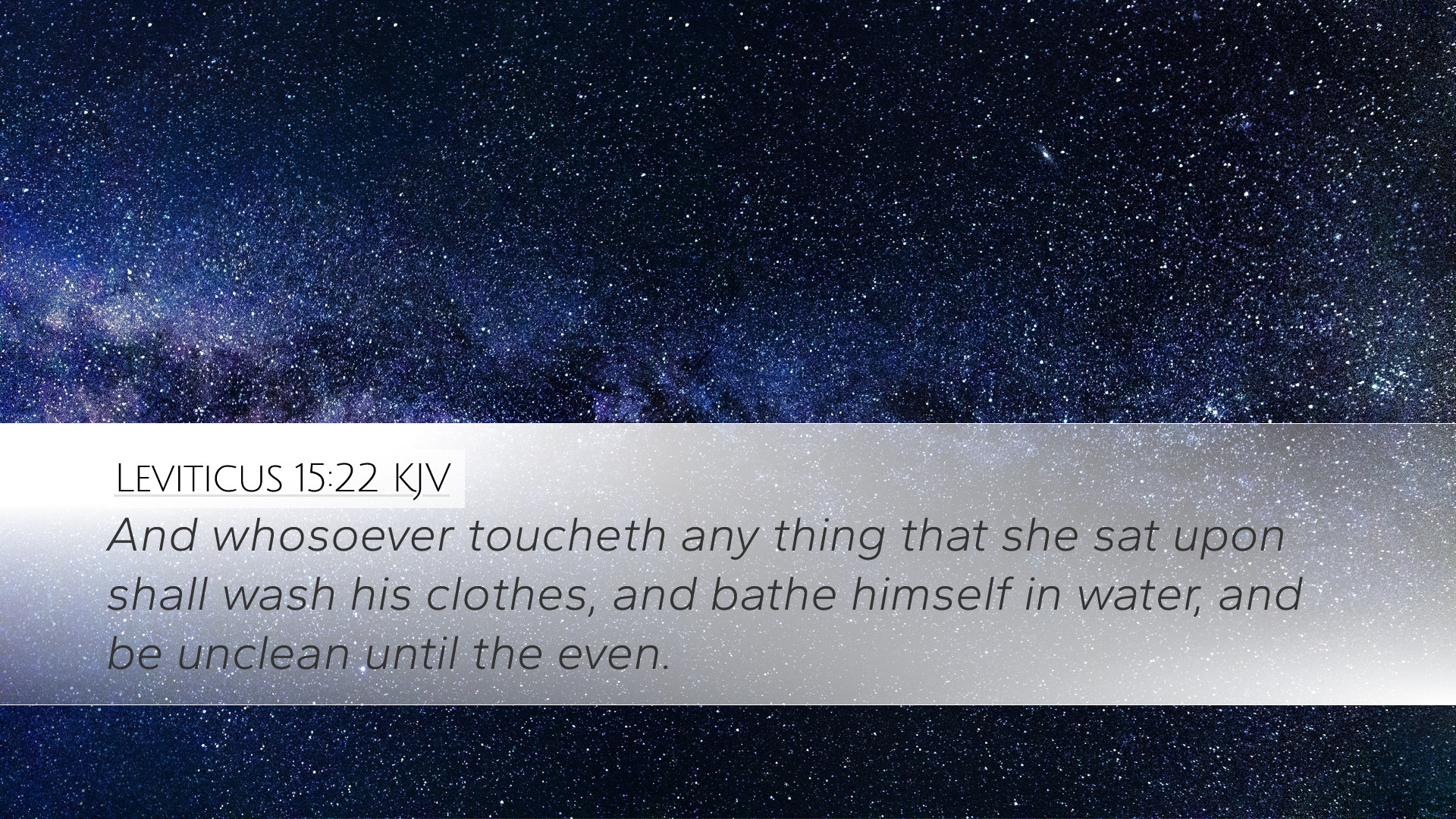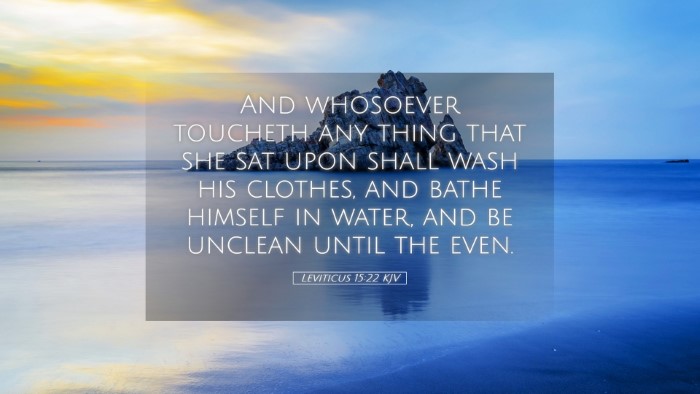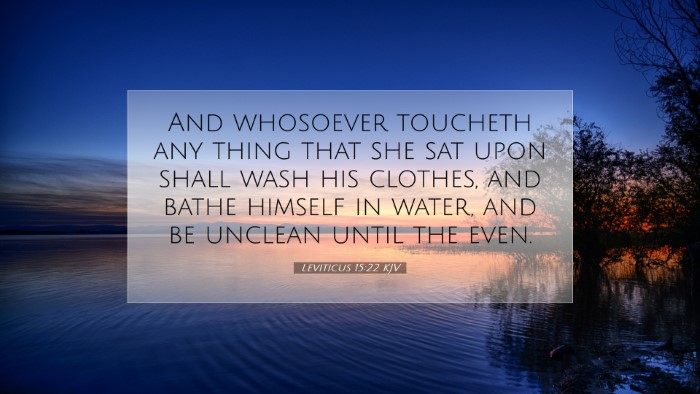Commentary on Leviticus 15:22
Bible Verse: "And whosoever toucheth any thing that was under him shall be unclean until the evening: and he that beareth any of those things shall wash his clothes, and bathe himself in water, and be unclean until the evening."
Introduction
This verse is part of a larger section in Leviticus that addresses issues of ceremonial cleanliness and the implications of various bodily discharges. The detailed requirements outlined in these chapters may seem foreign and overly meticulous to modern readers. However, they reflect the serious nature of holiness in the Israelite community and the significance of ritual purity.
Contextual Analysis
Leviticus 15 deals primarily with bodily discharges, highlighting the importance of maintaining purity within the community. The cleanliness laws were designed not just for physical hygiene but also emphasized a lifestyle of holiness, which was essential for worship and fellowship with God. Understanding this context helps unravel the theological significance behind the regulations.
1. The Biblical Foundation of Cleanliness
According to Matthew Henry, cleanliness was linked to both physical and spiritual dimensions. The instructions in Leviticus were not arbitrary; they were directly connected to a holy God's nature and the need for His people to reflect that holiness.
2. The Nature of Ceremonial Uncleanness
- Understanding "Uncleanness": Adam Clarke emphasizes that being "unclean" did not necessarily imply sinfulness but rather a temporary state that required specific rituals to restore purity.
- Social Implications: Albert Barnes notes the social dimensions of these laws, stating that they not only affected the individual but also the community’s standing before God. An unclean individual could not participate in communal worship, thereby impacting the entire congregation.
Theological Implications
The laws contained in Leviticus convey deeper spiritual truths about separation from sin and the process of sanctification. Leviticus 15:22 reveals God's instructions for maintaining holiness among His people.
1. Symbolism of Cleansing
Henry notes that the act of washing symbolized purification from not just physical dirt, but also from the impurities that affected one’s spiritual state. The requirement to bathe and wash clothes signifies an intentional act to become clean before approaching God.
2. The Role of Community
Barnes points out that when any individual became unclean, it had a ripple effect on the community, as it demonstrates the interconnectedness of Israel as a covenant people. The call for communal cleanliness underlines the responsibility of each member for the holiness of the whole.
Practical Application
For Pastors and Leaders: The passage encourages leaders to consider the corporate nature of holiness. Just as individuals affected their community’s purity, leaders must guide their congregations towards a collective pursuit of holiness.
1. Teaching Holiness
Pastors should teach the importance of maintaining personal and corporate purity, encouraging practices that foster spiritual growth and accountability.
2. Engaging with the Modern Audience
For students and emerging theologians, understanding the cultural and historical context of these requirements can illuminate how to engage contemporary issues of purity – be they moral, ethical, or relational – through a biblical lens.
3. A Reflection on Grace
Clarke highlights that while these laws were stringent, they also point to God’s grace in providing a means for restoration. The careful regulations contrast with the overwhelming grace offered through Christ, who has fulfilled the law and provided a way to true purity for all believers.
Conclusion
Leviticus 15:22 encapsulates a deeper principle that transcends time: the call to holiness and the recognition of the communal aspect of righteousness. While the ceremonial law serves a specific purpose in the Old Testament context, its implications for the New Covenant community invoke a serious reflection on our spiritual lives today.
Final Thought: As we consider the implications of ceremonial clean and unclean states, let us remember that through Christ, we have received the ultimate cleansing, enabling us to approach the throne of grace with confidence.


